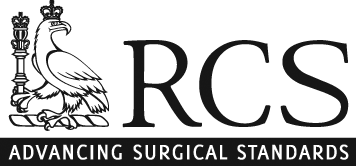Aftercare
We depend on you. For your brace treatment to be successful – you will need to look after your braces
very carefully.
Tooth brushing is extremely important as dirty braces not only look ugly but any plaque that you do not brush away on a daily basis will produce acid that will inflame you gums and decay your teeth. If your tooth brushing is consistently of poor quality, we may feel it necessary to stop your orthodontic treatment.
You will need to modify your diet too. During your brace treatment chewy, sticky sweets and chewing gum are banned. Hard foods, such as apples and french bread for example, will need to be diced, sliced or grated. Biting into hard foods will break your braces and breakages slow the treatment down. We also ask you to restrict your intake of fizzy drinks to once a week and to drink this using a straw.
Food to avoid
- Chewy foods: bagels, hard rolls, liquorice
- Crunchy foods: popcorn, ice, chips
- Sticky foods: caramels, gum
- Hard foods: nuts, candy
- Foods you have to bite into: corn on the cob, apples, carrots
- Chewing on hard things (for example, pens, pencils or fingernails) can damage the braces. Damaged braces will cause treatment to take longer
Soreness
Your braces may be sore for about 3-5 days when first fitted and sometimes after the brace is adjusted. If necessary, painkillers, such as the ones you would normally take for a headache, may help (please read the instructions on the packet). If the brace rubs your lips or cheeks, you can use the special silicone wax that we give you to help with this. Your teeth may feel loose at times during the treatment, This is normal and part of the moving process.
Most patient experience a little redness and swelling of the gums whilst wearing a brace. If you do get this then it will disappear once the brace is removed. If you allow the levels of plaque to build up you gums may become very swollen and unhealthy. We recommend regular visits to the hygienist during your treatment.
The brace you are now wearing is fixed to the teeth for the whole of your treatment. You should not try to remove it, as you may damage your teeth and the treatment will not work.
Root damage
All brace treatment will cause minor changes to the roots of your teeth, this is minor and not usually a problem. Occasionally changes to the roots can be more serious. It is not always possible to tell who will be at risk. Radiographs will be taken to assess your risk factors and you must tell us if any of your teeth have been previously injured.
Tooth brushing
It is important you brush well, three times per day and use fluoride toothpaste. Brushing may take a little longer when you have a fixed brace, if possible carry a brush with you for use after lunch.
Pay particular attention to the area where your gums meet the teeth. A daily fluoride mouth rinse should also be used last thing at night, after tooth brushing. Failure to keep your teeth and brace clean will lead to permanent scarring of your teeth, these white or brown marks on your teeth cannot be removed. Avoiding sugary food will help too!
It will be important you still have check-ups with your regular dentist throughout orthodontic treatment so that your teeth can be checked for decay.
Sport
It is recommended you wear a mouth guard for most kinds of sport but especially for contact and ball sports.. This will also be the case if you enjoy riding a bicycle, roller-skating or skateboarding. Mouth guards especially designed for people wearing fixed braces are available from the clinic. If you play a wind instrument, particularly the flute or a brass instrument, then a fixed brace may make it more difficult. You will need to discuss this with your music teacher and your orthodontist.
Breakages
Let us know your brace is broken as soon as is reasonably possible. If the breakage is not bothering you, the repair can wait until your next regular appointment with us. If the damage to your brace is causing you pain, ring up or e mail and we will arrange an emergency appointment for you. If a ligature comes off, this can be left until your next visit. A bracket may come loose, you can hold this in place with some orthodontic wax, you will not then need an emergency appointment. The archwire can protrude from the last bracket, if so, you can use wax to place over the sharp wire.
Breaking your brace means extra appointments and will make your treatment take longer, for example if you break your brace 3 times you will add at least 4 months to your treatment time.



